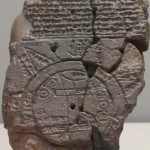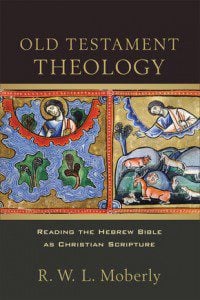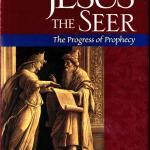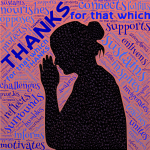 I speak, of course, only of Westerners. Ah-ha moments in Bible reading come to all of us, and perhaps you can remember one and tells us about it, but I can remember a few: when I realized the Bible’s writers and characters were ancient Jews and not modern American (Baptists), that they spoke Hebrew and Aramaic and Greek and Latin, that contemporary Jewish texts shed light constantly all over the Bible, that Paul’s letters were written before the Gospels, that the Gospels grew over time, that Isaiah was not written by the same author all at once … and then there was the colossal realization that Western senses of self, freedom, and individualism just don’t compute with ancient Jewish, Greek or Roman perceptions. That our theological issues are not theirs. That those folks cared lots about purity — and purity doesn’t mean to us what it meant then. That capitalism was unknown to the Bible. That young adults didn’t fall in love, date, and then choose the one they wanted to marry. That marriage itself didn’t mean to them quite what it means to us. I could go on…
I speak, of course, only of Westerners. Ah-ha moments in Bible reading come to all of us, and perhaps you can remember one and tells us about it, but I can remember a few: when I realized the Bible’s writers and characters were ancient Jews and not modern American (Baptists), that they spoke Hebrew and Aramaic and Greek and Latin, that contemporary Jewish texts shed light constantly all over the Bible, that Paul’s letters were written before the Gospels, that the Gospels grew over time, that Isaiah was not written by the same author all at once … and then there was the colossal realization that Western senses of self, freedom, and individualism just don’t compute with ancient Jewish, Greek or Roman perceptions. That our theological issues are not theirs. That those folks cared lots about purity — and purity doesn’t mean to us what it meant then. That capitalism was unknown to the Bible. That young adults didn’t fall in love, date, and then choose the one they wanted to marry. That marriage itself didn’t mean to them quite what it means to us. I could go on…
What many of us have come to realize that we get in the way at times when we are reading the Bible. That we impose, many times unintentionally and unconsciously, our world on the Bible and need to work at hearing the Bible in terms of the ancient world.
What are your best lessons in Bible reading? What were some of your ah-ha moments? When did you realize the gulf or gap between our culture and the Bible’s culture? When did you learn, or how did you learn, the Bible was not American, or European, or Australian, or whatever your culture is?
So I’ve got a book recommendation for you by E. Randolph Richards and Brandon J. O’Brien called Misreading Scripture with Western Eyes: Removing Cultural Blinders to Better Understand the Bible [if IVP can split infinitives I guess it doesn’t matter anymore?]. As I read through this book I kept asking myself if this was a 9-poster book or a one-poster and I’ve decided to keep it at one and hope you will consider purchasing it and using it in your own Bible reading.
Back to the big idea: Westerners see things in the Bible not there and we miss things that are there. And this happens because we are Westerners. So they find nine areas where we need to become more sensitive:
1. Our mores — our social conventions shaping our behavior and beliefs about what is good and bad, right and wrong — are not the Bible’s.
2. Race and ethnicities: we may think all are the same, but we betray our realities; the ancient world was easier with ethnic identities. We impose our ethnic assumptions on the Bible’s lines. When Moses married a Cushite, probably a dark-skinned African woman, we might impose our racial stereotypes when those stereotypes are modern and not ancient.
3. Language: this one gets lots of attention in postmodernity. Use translations to experience some variation arising from various readings of the language.
4. Individualism and collectivism: the Bible’s cultures were not individualist as we are in modernity and postmodernity. Our preoccupation with “me” in Bible reading is modern. We need to learn to read in plural.
5. Honor/shame and right/wrong: honor has to do with status; shame with lowering one’s status. Our culture is more about right and wrong. What society expects shapes them far more.
6. Time: they discuss chronos vs. kairos senses of time.
7. Rules and relationships: the Bible’s relationships shaped rules while we tend to see rules shaping relationships. Take Paul and circumcision which seemed to be less a rule and more about relationships.
8. Virtue and vice:ours are not theirs — like tolerance and freedom and pax Americana and self-sufficiency. The Bible’s focus was love — is it ours?
9. Finding the center of God’s will: this is a variant on individualism. Ours is a world in which self is at the center.
The authors provide some suggestions:
1. Embrace complexity
2. Beware of overcorrection
3. Be teachable
4. Embrace error
5. Read the Bible together — with others.















